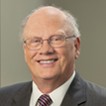Review Health Professional Overtime Policies In Wake of February Supreme Court Ruling
April 10, 2023
By: Charles R. Hay and Travis D. Hanson
In late February of this year, the U.S. Supreme Court issued an overtime pay ruling on a 6-3 vote in Helix Energy Solutions v. Hewitt that drew headlines and then quickly faded into the background. At the time, headlines such as this from an Associated Press story were common: “Justices OK Overtime Pay for $200,000-a-Year Oil Rig Worker.” Hospitals and other institutional providers should take notice of this decision. Its significance is suggested by the fact that the Massachusetts Nurses Association and National Nurses United filed briefs in support of the worker and that those briefs were specifically noted by the Supreme Court.
The federal Fair Labor Standards Act (FLSA) guarantees overtime pay to employees who work more than 40 hours in a workweek unless the employee is employed “in a bona fide executive, administrative, or professional capacity” as those terms are defined by agency regulations. 29 U.S.C. § 213(a)(1). Among the requirements adopted by the federal Department of Labor is a rule that an executive or professional employee must be paid on a “salary basis” to qualify for exemption as an executive employee.
Michael Hewitt worked in a supervisory role on an offshore oil rig, overseeing parts of the rig’s operations and 12 to 14 workers. He worked on a shift basis — 12 hours per day, 7 days per week — and his pay was calculated on a daily rate. His annual compensation exceeded $200,000. Hewitt filed his overtime pay suit against his former employer approximately two weeks after his employment contract ended.
Helix Energy Solutions argued that Hewitt was paid on a salary basis because he was paid at least $963 (the daily rate) in any week in which he worked. To qualify for the salary exemption, Department of Labor regulations required payment of at least $455 per week (now $684). The Supreme Court majority opinion rejected Helix’s argument. It interpreted Department of Labor regulations as requiring that an employee on a salary basis receive a fixed amount per week without regard to the number of days or hours worked. The $963 daily rate paid to Hewitt was contingent on his actually working and did not qualify as a flat, predetermined amount fixed independently of the number of days worked.
The Court backstopped its conclusion by reference to briefs filed by the two nurses’ associations. National Nurses United described itself in its brief as the country’s largest federation of registered nurse associations, encompassing a number of states, including Kansas. It argued that the interpretation of DOL regulations advanced by Helix would allow hospitals to avoid federal overtime requirements for day-rate or hourly executive nurses by guaranteeing at least one shift per week at more than $455 (now $684) and then requiring additional hours that would cross the overtime threshold but paying those additional hours as straight time. The Court’s majority opinion took note of this and stated that such a result would be “difficult, if not impossible, to reconcile with the FLSA’s design.”
Hospitals and other institutional providers that are paying executive nurses on a daily or per-shift basis without regard to overtime and treating such arrangements as salaried should thus revisit their pay practices. Of note also is that a document signed by a nurse, stating that he or she is an independent contractor and thus not paid as an employee, will not protect the employer if the nurse otherwise meets the legal test for classification as an employee.
The Court’s decision also impacts a related but separate exemption from the overtime pay requirement for bona fide professionals, which also generally requires compensation on a salary basis. Department of Labor regulations exempt physicians from the salary requirement, meaning they might be paid on a shift basis. Hospitals sometimes regard APPs as equivalent to physicians for this purpose and also pay them on a shift or hourly basis. But the analysis is not the same. The exemption from the salary requirement applies to physicians and also to “other practitioners licensed and practicing in the field of medical science.” While this might seem to fit APPs, the Department of Labor has historically taken the position that it does not. And case law has held that neither an APRN nor a PA fits within the quoted language and instead must be salaried to be exempt. Kansas licensure statutes and regulations for APPs, particularly recent Board of Nursing regulations establishing an independent status for APRNs, might support a contrary argument but there is presently no clear precedent for this.
In any case, hospitals and other institutional providers who treat individual employees as exempt without compensating them on a salary basis in line with the Supreme Court’s decision should revisit their compensation plans. After the Court’s decision, Helix was exposed to liability for 40 or more hours of overtime pay for each week Hewitt worked for at least two years of his employment, plus liquidated damages in the same amount, and attorneys’ fees, which could greatly exceed the other items. Guessing wrong to avoid overtime for a highly-paid employee carries substantial risk.
For More Information
If you have questions or want more information regarding the FLSA overtime policies, contact your legal counsel. If you do not have regular counsel for such matters, Foulston Siefkin LLP would welcome the opportunity to work with you to meet your specific business needs. Foulston’s healthcare lawyers maintain a high level of knowledge regarding federal and state regulations affecting the healthcare industry. At the same time, our healthcare practice group's relationship with Foulston’s other practice groups, including the taxation, general business, labor and employment, and commercial litigation groups, enhances our ability to consider the legal ramifications of any situation or strategy. For more information, contact Dick Hay at 785.354.9413 or dhay@foulston.com, or Travis Hanson at 913.253.2132 or thanson@foulston.com. For more information on the firm, please visit our website at www.foulston.com.
Established in 1919, Foulston Siefkin is the largest Kansas-based law firm. With offices in Wichita, Kansas City, and Topeka, Foulston provides a full range of legal services to clients in the areas of administrative & regulatory; antitrust & trade regulation; appellate law; banking & financial services; business & corporate; construction; creditors’ rights & bankruptcy; e-commerce; education & public entity; elder law; employee benefits & ERISA; employment & labor; energy; environmental; ERISA litigation; estate planning & probate; family business enterprise; franchise & distribution; government investigations & white collar defense; governmental liability; government relations & public policy; healthcare; immigration; insurance regulatory; intellectual property; litigation & disputes; long-term care; mediation/dispute resolution; mergers & acquisitions; Native American law; oil, gas & minerals; OSHA; privacy & data security; private equity & venture capital; product liability; professional malpractice; real estate; renewable energy, storage, and transmission; securities & corporate finance; startup/entrepreneurship; supply chain management; tax-exempt organizations; taxation; trade secret & noncompete litigation; and water rights.
Health Law Resources
Sign up to receive these issue alerts straight to your inbox here.
This update has been prepared by Foulston Siefkin LLP for informational purposes only. It is not a legal opinion; it does not provide legal advice for any purpose; and it neither creates nor constitutes evidence of an attorney-client relationship.






